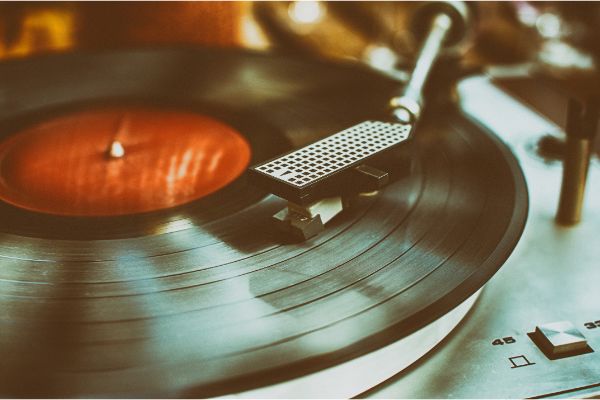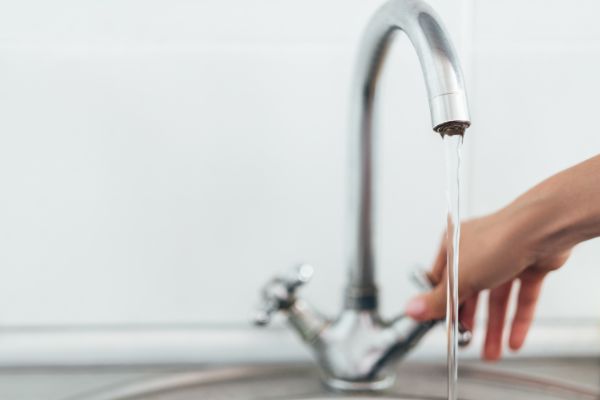Disclaimer: This post may contain affiliate links, meaning we get a small commission if you make a purchase through our links, at no cost to you. For more information, please visit our Disclaimer Page.
Vinyl was once the medium of choice to play audio recordings using a record player. Over the years, other technologies have replaced vinyl. However, audiophiles, historians, and collectors still want to hear vinyl recordings. Thanks to their overall durability, vinyl is helping the traditional record make its comeback.
Although many decades-old vinyl records can still play their audio tracks beautifully, many wonder if water affects their sound quality. In addition, while vinyl records are durable, that does not mean they are immune to the elements, particularly over a long enough period.
Viny owners, especially collectors, might stop playing their records because of these concerns. Or perhaps, they do not know how to care if their records get wet. Therefore, this article will try to get to the heart of this matter.
Table of Contents
Can Vinyl Records Get Wet?
Generally, vinyl records can get wet. However, how moisture affects the vinyl depends on the degree and type of water. Before we proceed, it is best to avoid getting your vinyl records wet as much as possible.
Although there are some situations where water poses a minimal danger, a record is not something that should stay wet for very long. So if you notice water splashes on any of your records, wipe them away as soon as possible.
Regular, distilled water should not harm vinyl records. However, there are still some things that collectors and players should remember here. Although this kind of water does not contain chemicals that might damage the vinyl, we’re referring to some temporary, surface-level exposure to excess moisture.
Vinyl can be tough and resistant to damage, so water should not be an issue. If some of your records get wet, you can dry them without fear of damage or loss of audio quality.
However, rainwater may have some impurities that could damage a record. In most cases, it will probably take prolonged and sustained exposure to a downpour for this to be an issue. But, again, keeping your records out of rainwater is still a good idea.
On a related note, full submersion in water could be an issue for vinyl records. So if you live in a flood-prone area, storing your vinyl in waterproof storage makes sense.
Prolonged submersion in water could cause mould to grow on the surfaces of the records. If the mould gets bad enough, it could affect the audio quality of the medium. Furthermore, it would be challenging to deal with the deterioration and restore the vinyl to its former condition.
Water is harmful to the labels or sleeves of a record. While the moisture should not harm the vinyl material, it can destroy the sleeves in which you keep the records.
Water will soften the sleeves. So over time, the composition of the containers will start to break down. If this happens, you may be unable to save the sleeves.
Additionally, records inside those sleeves might stick to the inner surfaces of the containers. Once they do, parts of the label or cover could peel off and stick to the vinyl surfaces. Again, if this happens, it may be difficult to remove such things without risking damage to the records.
Is It Okay To Play Records Wet? (3 Factors to Keep in mind)
It is fair to say that it is okay to play records when they are wet. However, it comes with a few caveats. Further, habitually playing your records while damp is not good practice.
Similarly, online vinyl communities have differing opinions about this issue. Therefore, to better understand the problem, we should review what happens to vinyl when you play it wet.
1. Friction Reduction
When you play a wet vinyl record, water acts as a lubricant. It reduces the friction between a player’s needle and the grooves on the surface of the vinyl.
If there’s less friction, you might be able to play some records that are unplayable if they were dry. That’s because a wet record has lower surface noise than its dry counterpart.
2. Moisturizing the Stylus
Water impacts the player as much as it does the vinyl itself. In this case, the excess moisture makes the stylus or needle wet. Once this happens, the output of the subsonic energy gets lower than it would if the stylus were dry. In turn, the sound you get from the record sounds more accurate and authentic.
3. Player Longevity
Because there is a reduction in friction, your record player’s stylus should last longer. How long it will last depends on many factors, however.
Note †hat you should be able to play the record after you dry it. However, it may take a few dry plays to get the record to sound like it did before it got wet.
Is It Okay To Clean a Vinyl Record With Water?
Yes, it should be fine to clean dusty vinyl records with water. However, if you do so, only use distilled water to avoid impure compounds.
If your vinyl is time-worn and visibly caked in dust, you may be able to use slightly warm distilled water to help you with this job. For the best results, use an absorbent, non-static cloth to dry the records gently after cleaning.
Although you can leave a wet record to air dry naturally, it will pick up extra dust and other particles. Too much dust in the record’s grooves could alter how it sounds when you play it later.
Can You Put Vinyl Records in the Dishwasher?
Although there may be some settings on some dishwashers that could work for vinyl, it is probably not a good idea to clean your records this way. Dishwashers often use boiling water to get the dishes clean.
Too much heat in a closed environment may cause the records to warp out of shape before the washing cycle completes. Additionally, unless the vinyl records stand up straight for the entire time, there is even more risk that they will bend out of place as the pressure of the hot water works on them.
What Should You Avoid Using When Cleaning a Record?
- Avoid using regular tap water to clean your records. Tap water in some areas can have mineral contents that are too high, and the compounds of these minerals could damage the records.
- Similarly, vinegar is acidic and will hurt the quality of your records.
- Although some professionals may use some isopropyl alcohol, they typically do so at very low levels. For the average collector, we recommend avoiding such substances. Incorrect applications could damage the coating on the records.
How Long Do Records Take To Dry?
The answer varies according to different regions. However, the average drying time is at least one hour after cleaning before a record is dry. That is, if you air dry the record. Therefore, some environments may mean waiting a few hours before trying to play your records.
Conclusion
You can play vinyl records wet in some circumstances. For the most part, brief exposure to water should not harm the surfaces of your vinyl records. Still, you’ll want to avoid full submersion or indefinite exposure to water, especially if it has many minerals. For cleaning and caring for your records, you can use some of our tips above.


